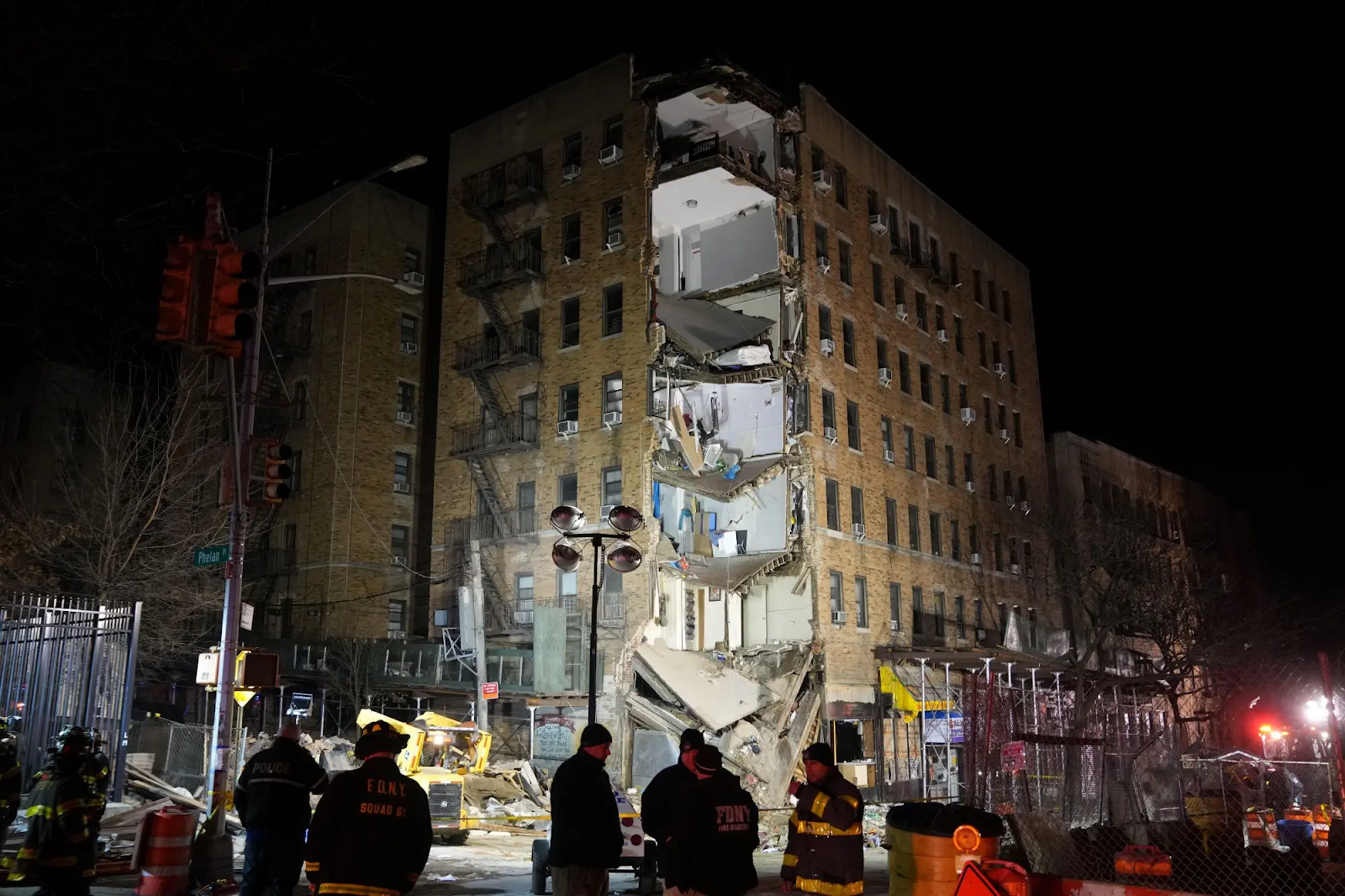I like to think of myself as an empathetic person. Though introverted and not effusive with my emotions, I feel deeply for other people’s pain, even people I don’t know. The current war between Israel and Hamas is heartrending, and I mourn the civilian deaths and destruction on both sides of the border. And how can I not internalize the anguish endured by the Ukrainian people from Putin’s devastating land-grab, now closing in on two years with no positive resolution in sight. Closer to home, I need only look to the streets and subways of my own city to see the suffering of the homeless, the hopeless, the mentally ill and the drug-addicted, be they fellow New Yorkers, or refugees and migrants seeking a better life and a modicum of human kindness.
A frightening New York City incident hit the national news this past week, though thankfully, no one was killed or seriously injured. The partial collapse of an apartment building in the Bronx left dozens of families homeless, and the city and Red Cross are assisting with temporary housing. While some residents were allowed to briefly return to collect pets and other belongings, the apartments in the collapsed section were deemed too precarious to allow anyone to enter what remained of their homes. I thought of lives and holidays upended, of smashed Christmas gifts now buried in the rubble, and of the terror of those who had to flee the crumbling building. One news program interviewed a survivor, a young woman whose apartment lay in the destroyed section, now permanently inaccessible. She tearfully recounted the precious possessions she had to abandon, including photographs and jewelry of her recently deceased mother. She was grateful to be alive but still, what a loss!
Early
investigations into the cause of the collapse point to a building inspector
who misdiagnosed a critical support column as a “decorative element,” discounting
a fatal flaw in the structure. Miraculously there were no fatalities in the
collapse, but his error has left more than 170 residents of the building
without a home and with their belongings shattered. The engineer has been
suspended from his job and his authority to inspect buildings may be
permanently revoked.
The stupidity and incompetence of this NYC building
inspector was echoed just a few days later on a far more tragic scale by the “accidental”
killing of three Israeli hostages in Gaza by the IDF. It is
incomprehensible that Israeli soldiers fired on half-naked civilians waving a
white flag. Two men were killed instantly, while a third was wounded. Then he was
gunned down while seeking shelter and calling out for help in Hebrew. There
will be a full investigation by Israeli military officials, who have in the
meantime declared that the fatal incident was “against our rules of engagement.”
If something positive can be salvaged from this catastrophe, perhaps the tragedy
will induce
Netanyahu to resume negotiations for Hamas to release more hostages. These
three men, killed by “friendly fire,” can be added to the growing list of senseless
deaths of thousands of Palestinian and Israeli civilians.
My heart aches for all the victims and their families, and my
pain is compounded by the utter futility of these preventable disasters. Yet I
can’t help but feel some sympathy for the unintentional perpetrators of the
Bronx and Gaza calamities. The NYC building inspector may have been lazy,
inattentive and reckless, but he surely didn’t intend for the building to collapse.
The destruction of his career and reputation will be the consequence of his blunder,
but I imagine that if he has any sensibilities at all he would be racked with
guilt. I know I would be. Likewise, the Israeli soldiers who shot and killed
their own countrymen must live with the horror of knowing what they did. At
worst they may be court martialed and imprisoned, but their astounding error
will likely haunt them for the rest of their lives. It remains to be discovered
what led to this horrendous misjudgment, but the slayings were certainly not deliberate.
Perhaps it’s the author in me that is able to construct the imagined regret and
anguish on the consciences of the parties responsible. Does the empathy I have
for the perpetrators diminish the grief I feel for their unintended victims? I
would like to think that compassion is boundless and enough sympathy exists in
the universe for both the innocent and the guilty. I don’t believe it’s a
zero-sum game. This feeling for others, even the injudicious, negligent and imprudent,
is what essentially makes us human.



No comments:
Post a Comment